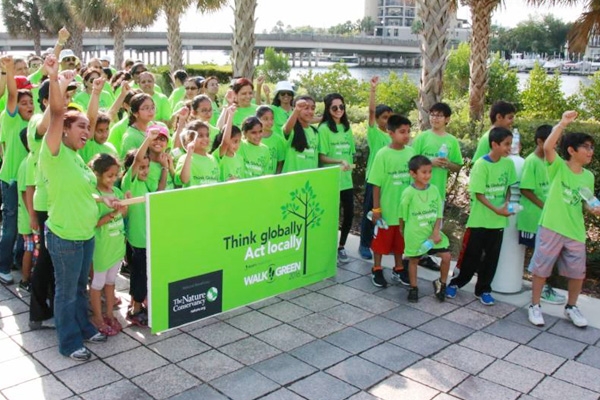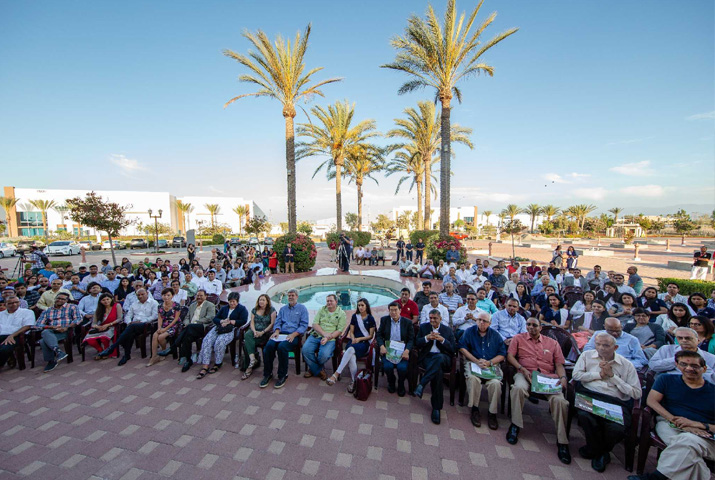
BAPS Charities celebrates a three-year partnership with 'The Nature Conservancy' (TNC) through its Walk Green initiative, a series of walkathons hosted by BAPS Charities across North America.
Beginning in 2016, BAPS Charities coordinated endeavors with TNC in order to raise funds for the Plant a Billion Trees initiative, and on August 24, 2018, presented the final gift of $166,000 to TNC executives and program leadership in Chino Hills, California.
The volunteers and donors of charities rendered a total of 300,000 trees to TNC, made possible by $431,000 in total funds raised over three years by 23,000 walkers at 76 cities across the nation.
TNC personnel and leaders accompanied several of these walks, educating walkers regarding the significance of environmental protection and the pressing need for all people to become progressive stewards of the environment.
"Tree planting and reforestation are the most rewarding ways to improve wildlife habitats and cities, foster clean and abundant waters, and mitigate carbon emissions that cause climate change," Chris noted during his visit to Chino Hills,
BAPS Charities over the past six months hosted their annual walkathons across North America. This year's national partner and beneficiary, the Nature Conservancy, continues a partnership from 2016 between BAPS Charities and the Conservancy.
Walkers from all age groups joined together in the spirit of service and community support to make each walk a great success.
Chris further said: "Thanks to the contribution of BAPS Charities volunteers we've been able to replant longleaf pine trees in the southern United States, which have a natural resilience to catastrophic storms, but only 3 percent of this once common forest-type remains. Your support also planted thousands of shortleaf pine trees in the Mississippi Alluvial Valley where the land has witnessed mass deforestation due to agricultural over development. These newly planted trees create opportunities for carbon sequestration and improve lives."
The charities, more widely in its operations participate in energy efficiency planning through prioritizing the use of solar power, efficient fiber optics and lighting fixtures, drought-resistant trees, and plants, as well as the use of AstroTurf to limit water use.
- Sowmya Sangam






























